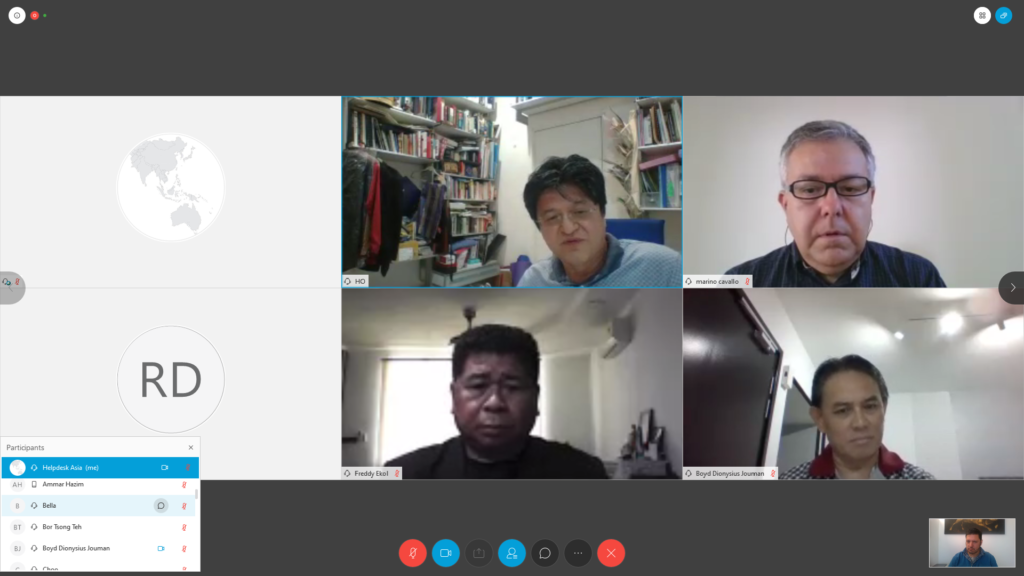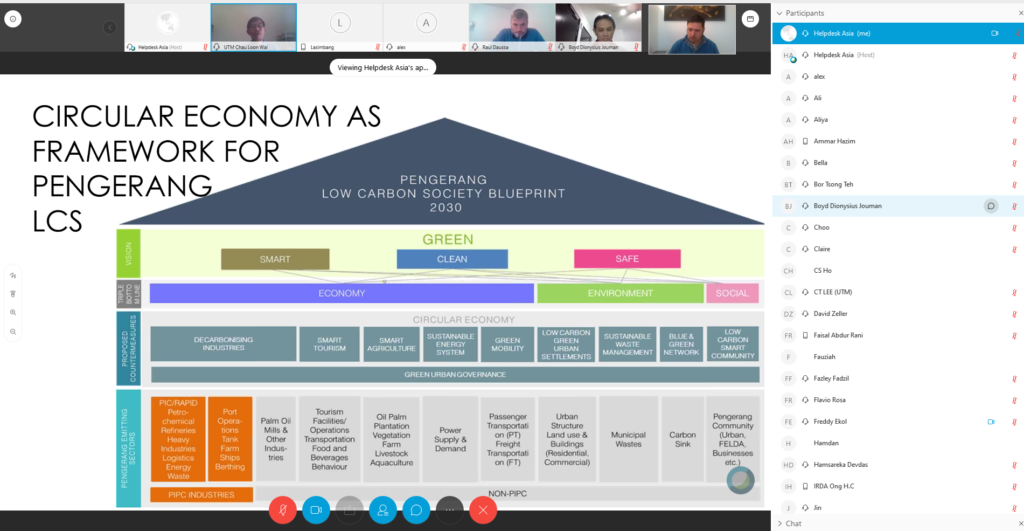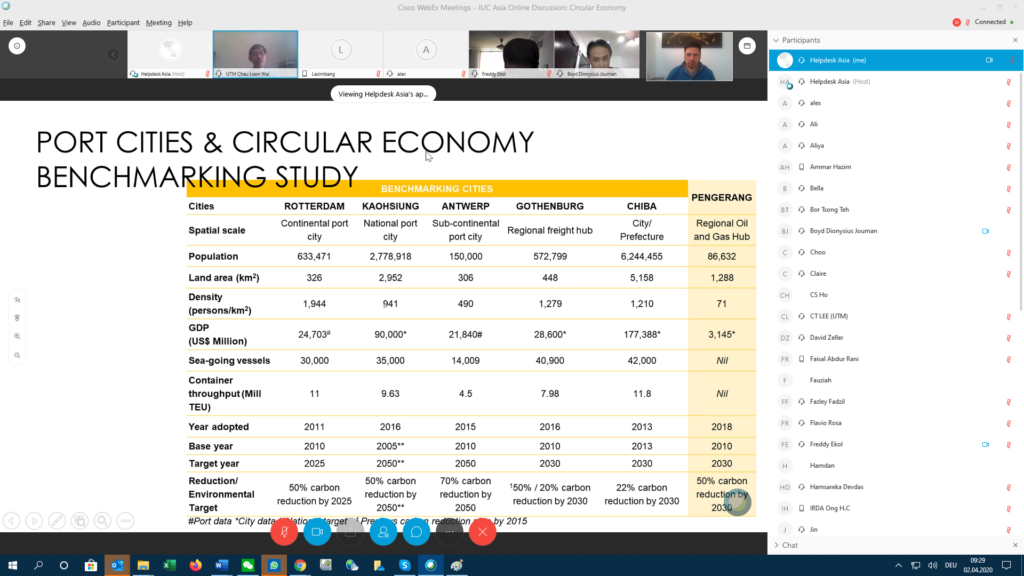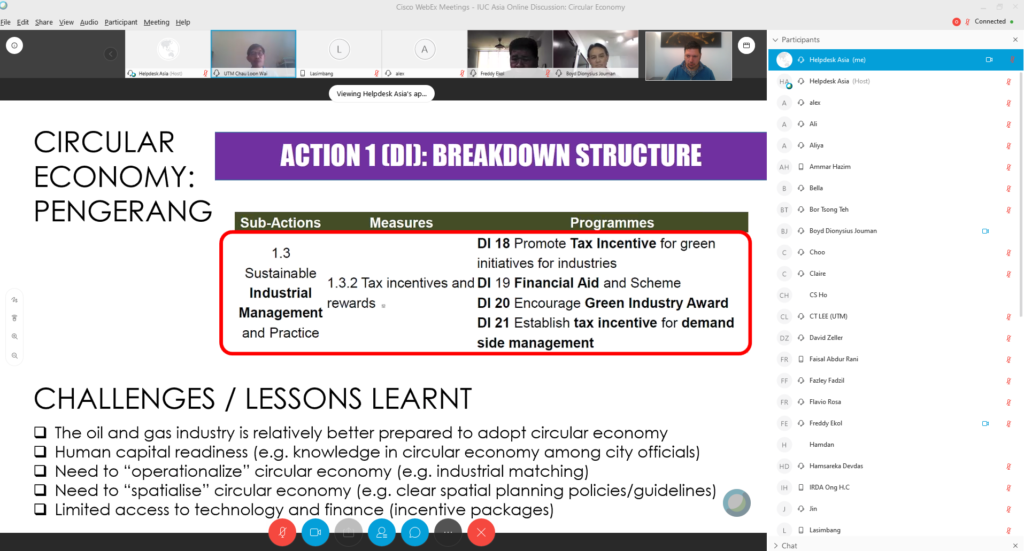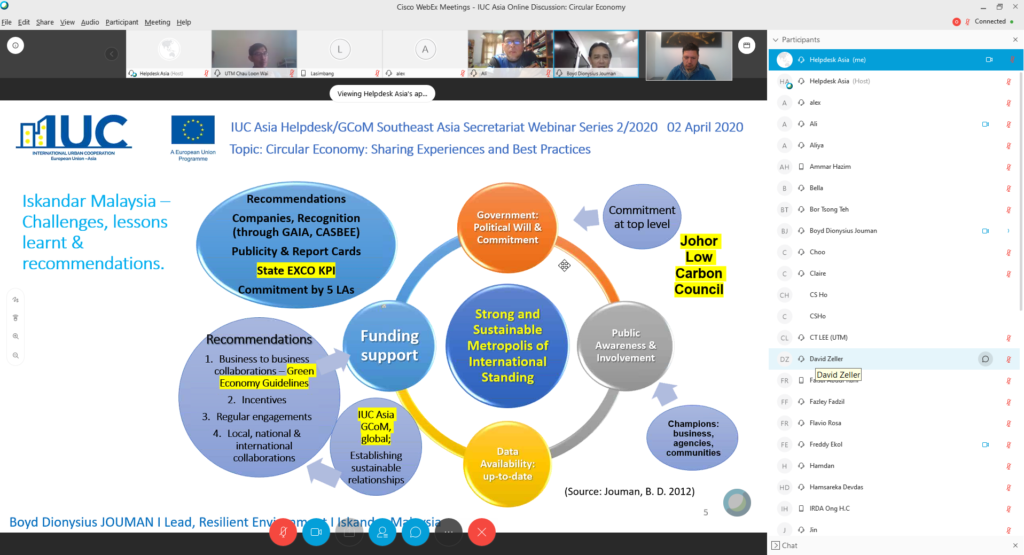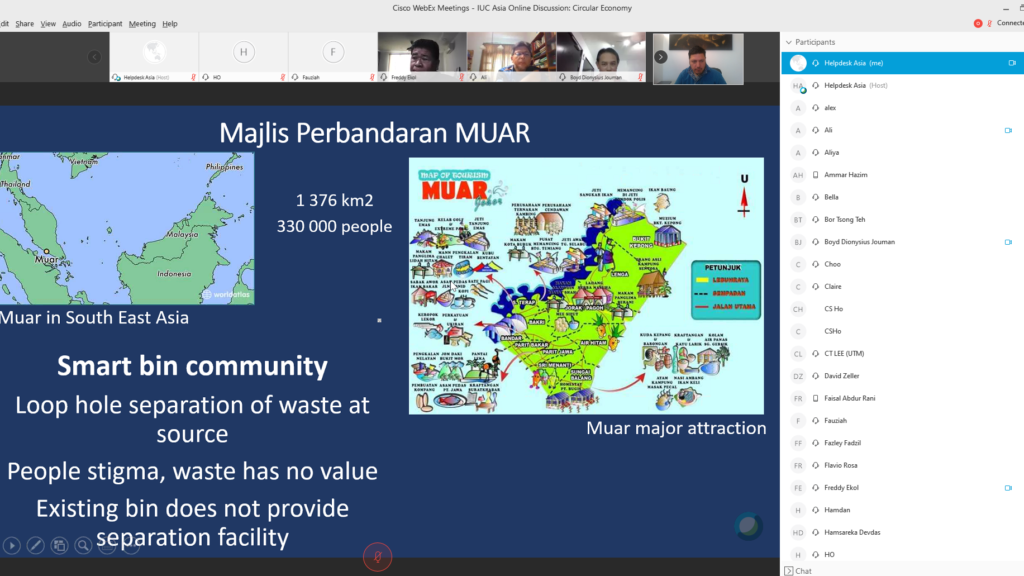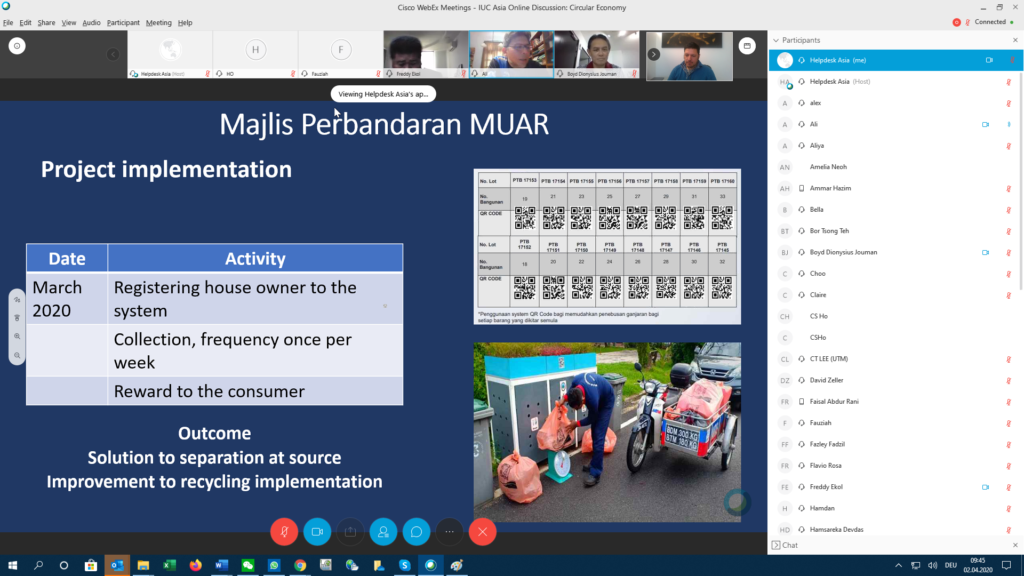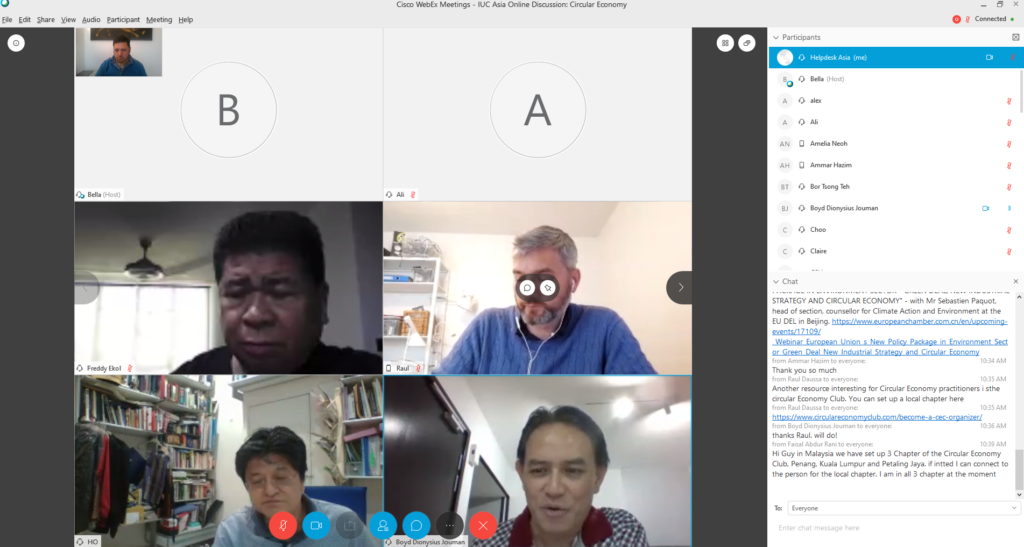Online Webinar, 2 April 2020: The IUC-Asia organised an online video discussion today in cooperation with the Iskandar Regional Development Authority (IRDA) and the Universiti Teknologi Malaysia (UTM). Attending the call were 44 experts from cities in Europe and Asia, sharing experiences and best practices with regards to circular economies. The IUC-Asia team moderated the discussion, with presentations from policy leaders and urban managers in Italy and several Malaysian cities.
Today’s discussion is part of the new series of thematic discussion rounds online, proceeding to support development of the circular economy in light of the travel limitations resulting from COVID-19 measures. On the concerted effort to pursue sustainable urban development, circular economy grows to be an attractive alternative to our current environmentally-destructive economy model of making-using-disposing. It is a model which involves sharing, leasing, reusing, repairing, refurbishing and recycling existing materials and products as long as possible. This directly addresses the issue of waste management and ultimately, could significantly reduce the grave environmental impacts of our current production and consumption pattern.
Raul Daussa, Lead Expert Climate and Cities for the IUC-Asia programme held an initial introduction to the theory behind circular economy, highlighting key drivers, such as resource scarcity and climate change. “In nature, the waste of one system becomes the raw materials of another system. With regards to natural resources, we will not be able to mine new metals [forever]. And, when we mine new materials, it uses a lot of energy, which exacerbates climate change. However, a circular economy contains a Technical Loop and Biological Loop, where people can benefit in a secondary market.”
Adrian Lasimbang, Senator of the Malaysian Parliament, explained best practices in renewable and alternative energy through Centre for Renewable Energy and Appropriate Technology (CREATE). Senator Lasimbang illustrated how in Penampang, they have a program to turn waste, such as aluminum cans, into energy producing products, like hydropower turbines and solar power panels. “Our main goal is to make sure we can produce cost-effectively. We want to make the systems to be affordable, while getting the youth and women in the community involved in the production.”
Chau Loon Wai, of the Malaysian Technological University in Pengerang, Malaysia presented Circular Economy as Framework for Low Carbon Industrial Port City: The Case of Pengerang. He explained the vision to create a Clean Green, Safe and Smart Pengerang 2023 leading to a 25x growth in GDP, while attracting tourists. The Senior Vice President of the Iskandar Regional Development Authority (IRDA), Boyd Joeman showcased its local Waste to Energy (WtE) project called Low Carbon Society Blueprint for Iskandar Malaysia 2025. Freddy Ekol, Councilor of the Penapang District Council presented the city’s recycling initiatives. Muhammad Ali Tukiman of the Muar Municipal Council presented the Smart Bin Community: Circulating Domestic Wastes.
Marino Cavallo of the Metropolitan City of Bologna presented their Circular Economy Activities. Mr Cavallo explained how the circular economy is one of the main strategic means to pursue sustainable development. Some projects developed so far are Circular Economy for SMEs (CESME), Agri-Food (SINCE AFC) and Green Start-up Support (GRESS). “Of course, we are cooperating with IUC-Asia for developing activities and sharing our experiences with the circular economy.” Their CESME program supports SMEs approaching the Circular Economy in optimizing their systems and shifting toward a more circular business model, while developing a masterplan and a funding application for nature-based solutions. Mr Cavallo stated “Our aim is to become a smart, sustainable city. We are working to develop cultural and creative industries in the circular economy sector, and to promote eco-design. We are a country of great brands…and we have to transform the idea that recycled things are the best things, the cool things for the consumers.”
The IUC-Asia plans to continue its live video meetings to facilitate mutual learnings between the participating cities of its programme during the crisis.
Please contact David Zeller (dz@iuc-asia.eu) for further information.
Streaming recording link of the online discussion
European Circular Economy Stakeholder Platform
Impressions



